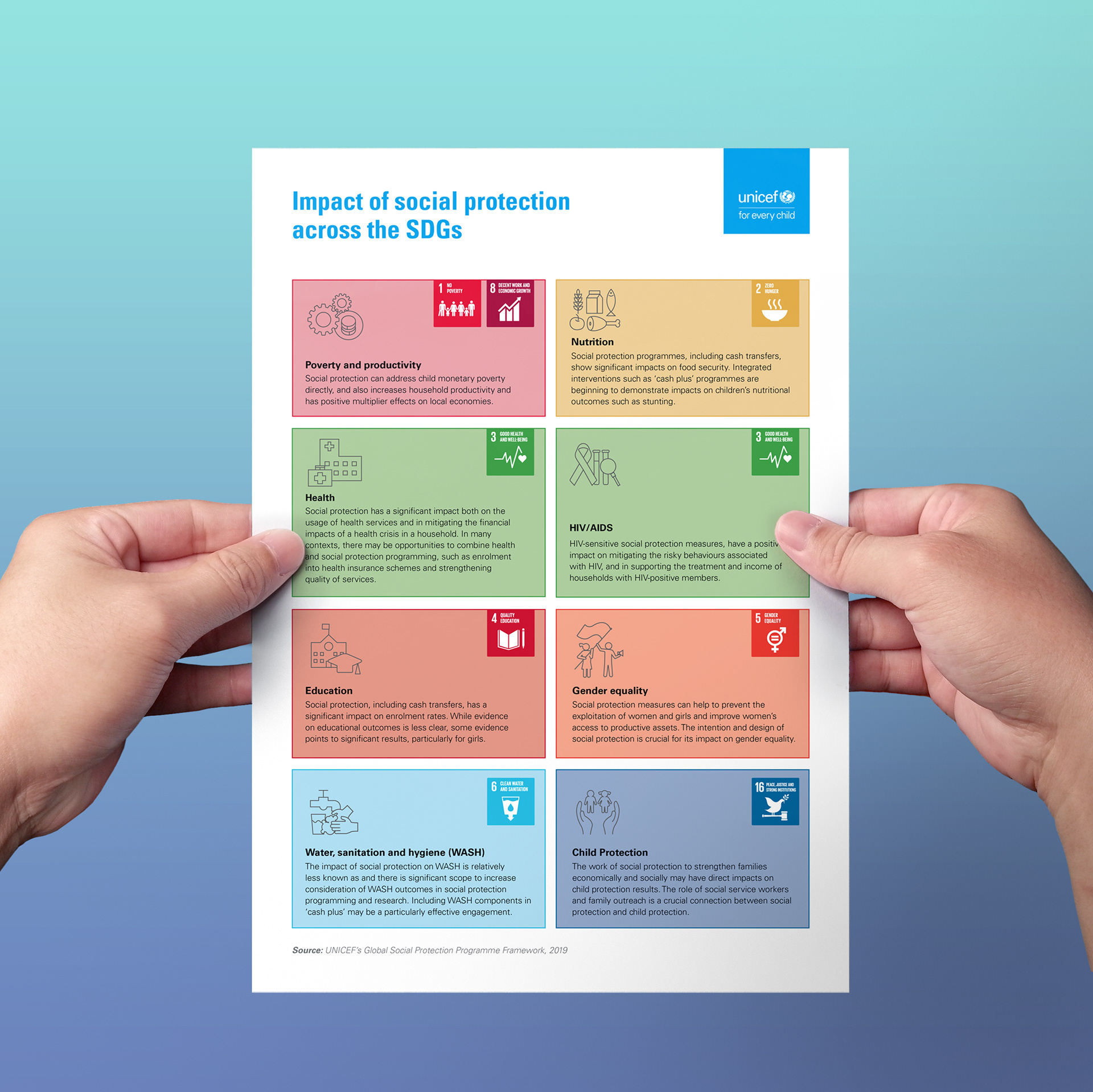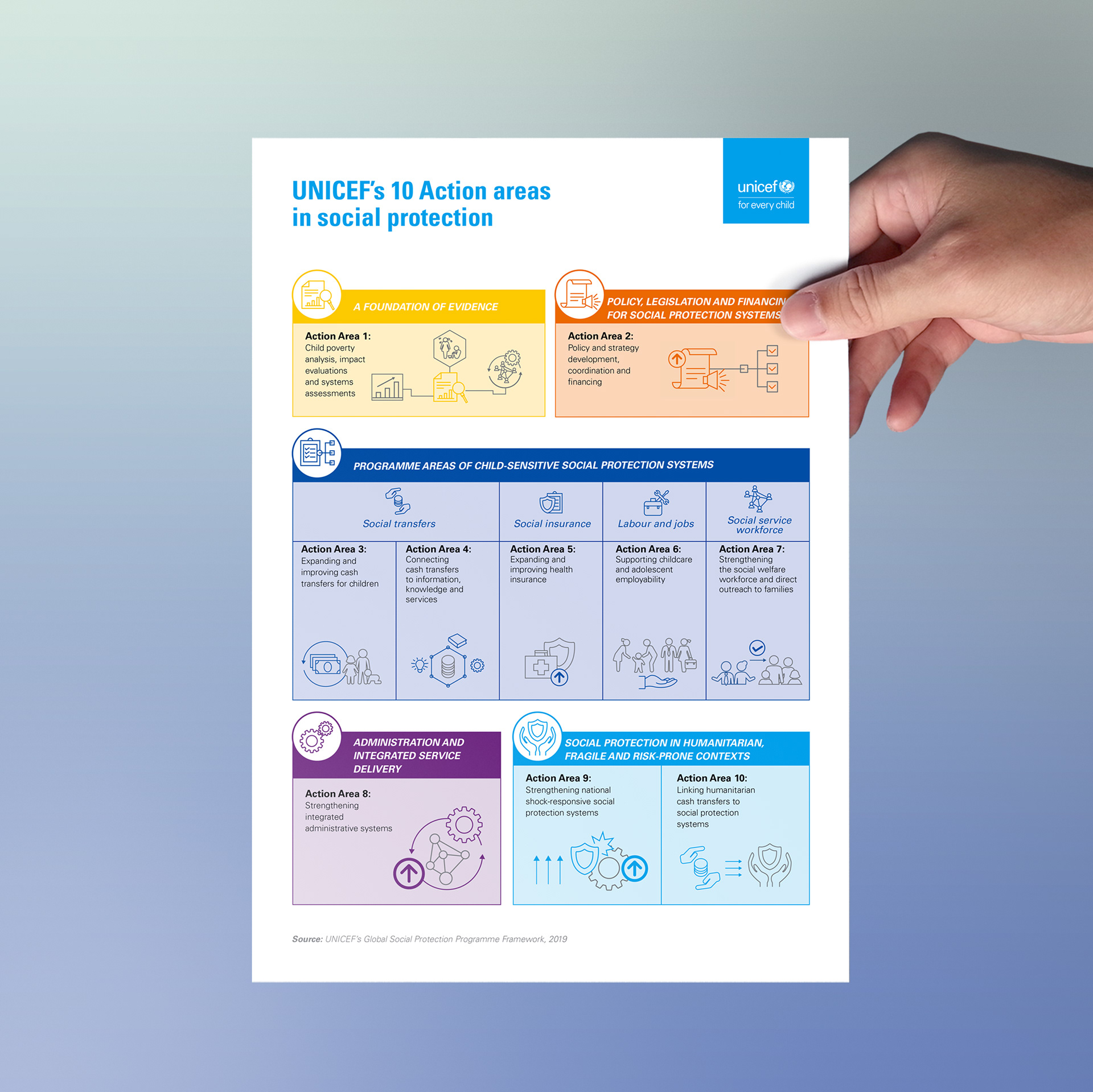UNICEF’s Social Protection Framework
We live in a world where 385 million children are struggling on less than $1.90 a day and there are significant child poverty rates even in the world’s richest countries. This leaves hundreds of millions of children are living in multidimensional poverty and will struggle to reach their full potential. This is devastating for the children themselves, and has knock-on effects for the societies and economies to which they belong. Further, growing and interconnected global trends, ranging from climate change to forced migration, threaten to increase child poverty and vulnerability, making the challenges even greater.
This framework outlines the crucial role child-sensitive social protection has to play in responding to these current and emerging challenges. It provides a conceptual framework and shared definition, evidence on the impacts of social protection, and what a child-sensitive social protection system should include. Hopefully, this will provide clarity to understanding child-sensitive social protection and highlight the change it seeks to bring in children’s daily lives. Put simply, social protection should ensure that every child:
· lives in a household with sufficient financial resources to develop and fulfill their potential.
· has access to quality basic services and the knowledge needed for development, regardless of income or personal characteristics.
· has direct contact with a social or outreach worker when needed, who can help understand the challenges children and their families may face and support the responses needed.
This programme framework and the guidance that accompanies it outline UNICEF’s commitment and contribution to social protection for children, including our key action areas and the activities we undertake. It also hopes to contribute to a global understanding of child-sensitive social protection and encourage national and international partners to work together to strengthen these systems. Social protection is the right of every child, it is the foundation of a country’s social contract, and requires national and international collaboration and commitment to provide every child with coverage and give every child an equal chance.

